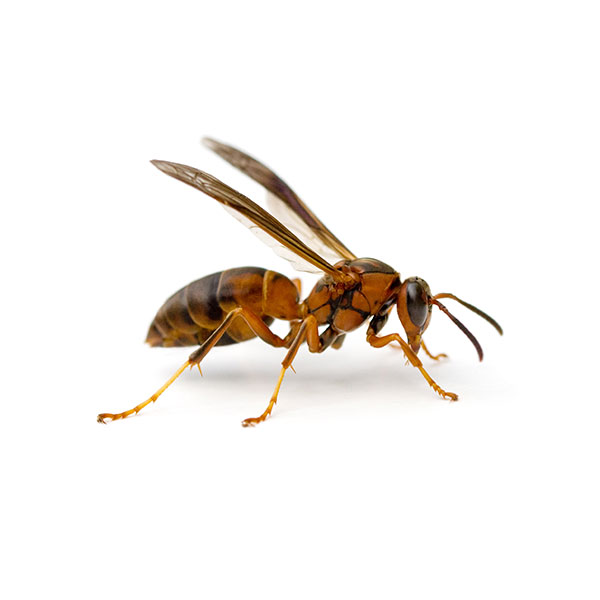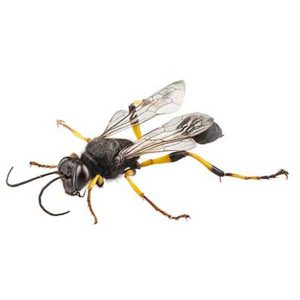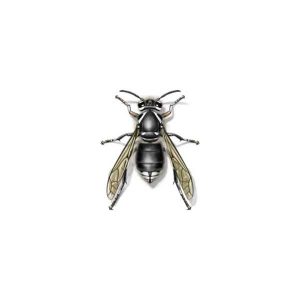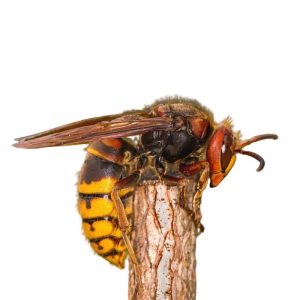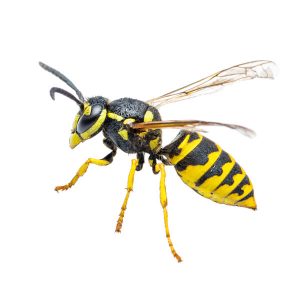Description
Paper Wasps in your area
With over 22 species found in the United States alone, paper wasps are a very common pest for home and property owners. Though these wasps look very similar to yellowjackets, they can be told apart by their unique nests. Paper wasps build papery nests that typically resemble an upside-down umbrella or paper cone. Most of these nests hang from horizontal surfaces that are shaded and protected, such as tree branches or eaves. Paper wasps primarily feed on nectar, spiders, and other insects such as mosquitoes and caterpillars.
Paper Wasp Habitat
Paper wasps get their common name from their unique paper nests. These wasps build nests by chewing up wood pulp, which creates the infamous papier-mȃché texture. Most nests are umbrella-shaped and hang from protected areas like attic rafters, porch ceilings, and tree branches. Since paper wasps frequently build nests near human structures, they have been known to crawl indoors through small holes and cracks.
Paper Wasp Behaviors, Threats, or Dangers
Paper wasps can be beneficial to the environment by aiding in pollination and controlling insect populations. That said, paper wasps are considered aggressive and may sting repeatedly if provoked. In the case that somebody with a bee allergy is stung, it is recommended to seek immediate medical attention. Since these wasps can be dangerous to humans, it is recommended to call a professional wasp control company right away if you spot these pests near your home.
Need help with Paper Wasp control?
We'll call you! Leave your information below.
